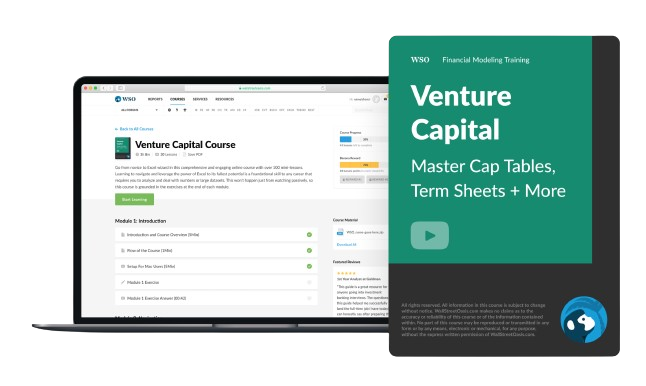Initial Public Offering (IPO)
IPO is when a private company goes public, raising capital by selling shares to the public
What Is An Initial Public Offering (IPO)?
IPO, or "Initial Public Offering", is the process by which a privately held company goes public by offering its shares to the general public for the first time. During an IPO, the company issues shares to various types of investors, including the general public, institutional investors, and high net worth individuals.
This process not only marks the company's debut on the stock market but also serves as a means to secure long-term capital.
Confident in their business strategy, company management embarks on this journey, aiming to capture the interest of both strategic and retail investors, while also adhering to stringent regulatory requirements.
While some investors see IPOs as opportunities for potential gains, particularly when well-known companies make their debut and garner media attention, it's essential to recognize that IPOs can be volatile and carry inherent risks.
Investors should conduct thorough assessments of each IPO's prospects and align their investment decisions with their long-term financial goals.
Key Takeaways
- An IPO is when a private company goes public, raising capital by selling shares to the public.
- Companies hire underwriters to guide them through the IPO process, including pricing and paperwork.
- Companies go public to raise funds for growth, offer liquidity to shareholders, and enhance transparency.
- IPOs offer early access to growth potential but come with risks. Careful research is essential.
- IPOs provide early opportunities and potential for high short-term ROI but may have liquidity issues and require thorough research. They often launch during bullish markets.
How an Initial Public Offering (IPO) Works?
No matter how massive or small, every business requires capital at every stage of its operations. So, when a business offers its shares on a stock exchange to the general public, the IPO process begins.
Many businesses start as private entities, often with a small group of initial investors supporting their activities. These investors fund such ventures, hoping that the company's growth will result in a positive return on their investment.
Before shares can be publicly listed, companies must follow the offering procedure set by stock exchanges. In the USA, the SEC regulates and sets guidelines that companies must follow before they can be listed on a stock exchange.
As a result, a private company planning to list on the stock market hires an underwriter—usually an investment bank—to offer guidance on the Initial public offering and assist with setting the right price.
Financial professionals like investment bankers are tasked with conducting in-depth research on the company's financial parameters as part of the process. The investment banks acting as underwriters oversee the entire offering process and liaison between the business and potential investors.
By producing necessary paperwork for investors and setting up meetings with possible investors, underwriters assist management in getting ready for an IPO. Once the company and its underwriter have determined the initial offering price, investors can purchase shares when the IPO is launched.
Once shares get listed on a stock exchange such as the NASDAQ or NYSE, the company's stock begins trading on a public stock exchange. After that, you can start trading in shares just like any other market stock.
Each country has its stock exchange where companies are listed. Regulators may have different restrictions and requirements depending on the jurisdiction in which the company wishes to list its shares.
For example, the Securities and Exchange Commission (SEC) in the United States establishes the policies and guidelines that govern the disclosure and reporting obligations of publicly traded businesses.
How to participate in an IPO?
Each country has its requirements, but in the USA, you must fulfill FINRA standards and the eligibility requirements set forth by your brokerage firm. Typically, you can fulfill these requirements by responding to a series of inquiries from your brokerage company.
If you satisfy FINRA's and your brokerage firm's standards, check the company's preliminary prospectus to learn about the risks. After requesting to buy shares in the offering, you must inform the company of the number of shares you desire.
You can apply directly through your brokerage account. However, it's important to remember that merely applying is not sufficient to guarantee that you will receive any shares in the offering.
You must first choose the account you wish to use. After doing so, click "Enter New Indication of Interest or Bid", whatever option shows on the screen, and then click Submit. When the "Select Offering" screen appears, choose "Participate" next to the offering.
Specifying the number of shares you feel comfortable owning is a key requirement because requesting a large number won't increase your chances of getting an allocation. If your indication of interest is accepted, you will be informed about the pricing of the offering on the evening when it is declared effective.
To be eligible to purchase shares, you must confirm your initial expression of interest by a specific deadline. By confirming, you effectively convert your initial expression of interest into an order to purchase shares.
Reasons Why Companies Go Through an IPO
One of the most typical reasons for a company to go public is to raise funds for the company.
Raising capital can be done for various reasons, including:
- Growing a firm
- Funding research
- Paying off debt
- Developing infrastructure
The goal is to accumulate some funds to aid in future advancements. The following brief pointers highlight the significant incentives for launching an IPO:
- The possibility of company expansion also increases with capital. Shares in a variety of private businesses are held by numerous stakeholders, including the company's founders and private investors.
- Listing on a stock exchange may occur when current investors decide to sell all or a portion of their stake. The current shareholders of the corporation may sell their shares to the general public through an Offer for Sale. As a result, current stockholders can sell their shares through an Initial public offering.
- A company's shares can be sold to the general public to generate significant liquidity and capital that can be used to enhance the company's future. After the capital infusion, the company will be in a stronger financial position to seek loans or negotiate loan terms.
- When a corporation's shares are listed on a stock exchange, they become more easily tradable compared to when the company is private. For a corporation to engage in this trading activity, its shares must be listed. As a result, the shares become more liquid, attracting investors to invest in the company. Additionally, it will increase price transparency and the company's financial stability.
- The financial data is also easily accessible to anyone due to the SEC's stringent regulation, which provides more transparency.
Should You Invest in an IPO?
You can gain early access to a business with significant development potential by investing in an IPO. In addition, it may give you a large profit margin and help you expand your money over time.
This is an attractive investment opportunity for you if you are adept at predicting the future of businesses and determining whether the offering will succeed.
An IPO investment is similar to other investments. However, they have the potential to provide you with good returns over an extended period, which you may then invest in financial obligations and life ambitions.
If you take a calculated risk, it is not any less or more risky than investing in mutual funds or other conventional investment options available in the stock market.
Despite its volatility, the stock market can assist you in building wealth over the long run by purchasing valuable stocks from successful businesses. An Initial public offering presents your opportunity to build wealth by selecting high-quality stocks at reasonable prices.
You can purchase numerous shares while staying within your budget because most of these offerings are inexpensive.
If the business expands, the value of your shares will rise quickly. If you attempt to purchase stocks after they have been listed, they will typically come at a significantly higher cost.
If you are well-informed and aware of the state of the market, investing in these offerings can be a good move. Unfortunately, some of these offerings become history, making those who passed up the chance regret it immensely.
Savvy investors always keep track of the list of prospective initial public offerings and add valuable shares to their portfolio whenever they see the opportunity.
Advantages of an IPO
There are many advantages to investing in an initial public offering.
Let's discuss the numerous benefits of investing in a public offering:
1) Early opportunity
The first time a company's shares are made available to the general public is during its Initial public offering. Therefore, you have the ideal chance to buy shares early. These Initial public offerings may help cash in some quick gains if withdrawn quickly. You can maintain your positions for a long time as well.
2) Long-term benefits
In the long run, investing in these Initial Public Offerings can help you generate excellent returns. This is because investments in initial public offerings are a type of stock investment that can be leveraged to achieve long-term objectives like retirement planning.
3) Transparency
The prospectus the company files and makes public contains all the details regarding the price valuation of equity shares. As a result, you get access to the same information that some of the best investors possess.
However, the level of transparency changes in the post-listing environment. After going public, the price would adjust based on industry performance and investor interest garnered.
4) High ROI in the short term
The IPO price is often the most affordable opportunity to buy shares of a potentially successful company. However, stock prices can experience significant jumps immediately after listing, allowing for quick and substantial profit-making. Some IPOs have even seen listing gains of over 70%.
Note
Think about the cost of a Coca-Cola share acquired when the company went public. In 1919, the corporation's initial public offering fixed the share cost at $40.
An investor who purchased one share in 1919 would currently own 9,216 shares after more than 100 years (and numerous stock splits).
That initial investment would have grown to be worth $559,964 if it had been valued at $60.76 per share, which was the 52-week average closing price for Coca-Cola stock as of October 31, 2022—not including dividends.
Disadvantages of an IPO
Like any other type of investment, IPOs have both advantages and disadvantages. Before making an investment decision, it's crucial to be aware of the drawbacks.
Let's look at some of these drawbacks below:
1) Liquidity problem
Many investors today want to sell the shares soon after the listing to profit from the listing gains. But it's not always possible. Selling is typically quite simple with highly successful IPOs, but in other cases, there may be liquidity problems as no one wants to buy the shares of an unsuccessful offering.
2) Time commitment
Before investing, you must comprehensively investigate the company and its track record. The company's prospectus contains the same information, but understanding it takes time and effort.
3) Launch during the bull market
Most companies go public during a bull market when euphoria is high. However, it is often said that you should always go with the flow. Thus, most businesses prefer to launch or issue their initial public offerings during the bull phase of the market.
When the market is in a bull phase, the sentiment is positive, and Investors are prepared to take high equity exposure or risk in exchange for higher profits. Unfortunately, it goes against the stock investment's fundamentals.
As we have seen, the stock market meltdown reveals the reality of the stocks that went public during the bull market. In situations like this, an investor is taken off guard. As a result, over-subscription during a bull market is more significant than over-subscription during a bear market.
Note
Not every IPO ends happily. One example is Webvan, a supermarket delivery service from the dot-com era. After its initial public offering in 1999, Webvan operated for about three years before suffering enormous losses.
When the company filed for bankruptcy in 2001, shareholders who bought shares at the time when the company was going public at $26 per share (and experienced a growth of 58 percent on the first day) and held on to them finally saw their shares drop to only 6 cents each.
Initial Public Offering (IPO) FAQs
IPO pricing involves valuation, investor feedback, and market demand. A preliminary price range is set, with the final price determined based on investor interest. The goal is to maximize funds raised while ensuring a successful market debut.
In an IPO, the cut-off price is the price at which shares are allotted based on investor demand, with no upper limit. In contrast, the floor price is the minimum price set by regulators below which shares cannot be issued. Cut-off prices are market-driven, while floor prices ensure a minimum offer price.
A lot size represents a specific number of shares offered in an IPO. The minimum order quantity is another term that is important to understand. As the name implies, it is the bare minimum of shares that a bidder must request to participate in an IPO.
An investor may bid for additional shares in multiples of the lot size.
An IPO Price Band is a range of prices within which investors can bid for shares during an initial public offering (IPO). It consists of a floor price (the lower limit) and a cap price (the upper limit). The final IPO price is determined based on investor demand within this price band.
If the company alters the price range, the offering period will be extended by a minimum of three extra business days.
Anchor investors are institutions that invest a substantial amount of money in an IPO before it opens to the public. They provide stability and credibility to the offering, making it more attractive to other investors.
Anchor investors are subject to a lock-in period due to their guaranteed allocation of a company's shares, and these investors may include mutual funds, pension funds, insurance firms, and other entities.
Investing in IPOs doesn't necessarily mean lower risk. IPOs can be riskier due to the lack of historical trading data, while established stocks have a track record. Assess each investment based on its unique characteristics and your risk tolerance.




or Want to Sign up with your social account?